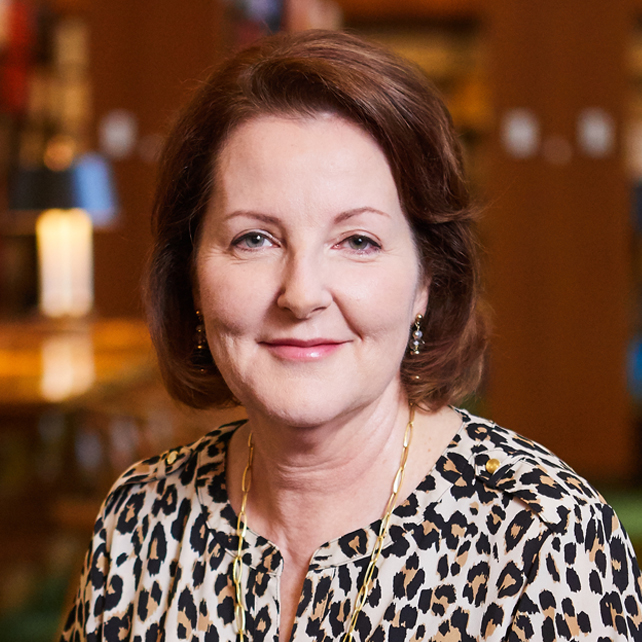
Kirsten St. George
ALUMNI AWARD RECIPIENT 2018
As a young girl, music and dance were prominent in the life of Dr Kirsten St. George. However, career ambitions were steered by a fascination for science that started in high school.
Information correct at the time of receiving the award
Her late father played an influential role, he was a scientist and “his camaraderie with collaborators and their shared enthusiasm for projects was very inspiring”, she says.
Biology and the mysteries of life held particular appeal, and this led Kirsten to UniSA, to undertake a Bachelor of Applied Science in Medical Technology and a Masters of Applied Science in Medical Laboratory Science.
“I remember my years in the bachelor degree as being filled with loaded timetables and heavy workloads, but also a good dose of fun,” she says.
“I remember the faculty setting high standards, but also being very supportive and understanding of a group of young people in a transitional time of life. They seemed to truly enjoy seeing the students do well.”
Armed with qualifications to match her enthusiasm, Kirsten moved to Tasmania, where she set up the first centralised virology diagnostic service and state reference lab for HIV. She then moved to Pittsburgh, USA, where she completed a PhD while working at the university medical center.
She now lives in New York State, where she is Chief of Viral Diseases at the prestigious Wadsworth Center – one of the largest state public health laboratories in the US – and is recognised as one of the world’s leading authorities on viral diseases.
Last year she was presented with the 2017 Diagnostic Virology Award, an international honour that acknowledges an individual whose contributions to viral diagnosis have had a major impact on the discipline. As a career achievement award, it recognises a lifetime’s work.
“At the international meeting the morning of the award presentation, there were several hundred people in the convention hall including many friends and colleagues I’ve worked with over the years, several of whom were previous recipients of the award – it was very moving.”
While in Pittsburgh, Kirsten and colleagues developed increasingly sensitive tests for viruses and worked with clinicians and pharmaceutical companies to coordinate virus detection with antiviral treatments in transplant recipients, leading to a more than 20% reduction in fatality rates in some of the high-risk groups.
Today her laboratory in New York is responsible for detecting, researching and informing authorities on viral diseases, including Zika virus and influenza. It also plays a key role in response efforts during major outbreak events.
When Zika virus caused outbreaks in Central and South America in 2015 and 2016, they tested more than 12,000 suspected cases and confirmed more than 1200 Zika cases in the first year.
“It’s essential that our awareness and preparedness for these situations are consistently at a high level. We also have regulatory oversight of about 300 clinical virology labs, and I run an applied research program and a number of national reference centres.”
Among all this activity, Kirsten still finds time to mentor young scientists and she has been thrilled to see many of them move on to senior positions, making important global contributions to science and public health.
She also considers teaching and service to be important and has a faculty appointment at the state university, and positions on several national and international committees and boards.
Asked who inspired her throughout her career, she cites the many influential people that gave her a chance earlier in her career.
“There are many brilliant people I’ve met over the years who were inspiring through their achievements and energy and their infectious spirit. But also, the people who have inspired me are those who have trusted me to do things.
“There have been people at key points in my career who took a chance on me when, on reflection, there really didn’t seem to be a lot of reason for them to do that. It’s very motivating when someone has confidence in you.”




